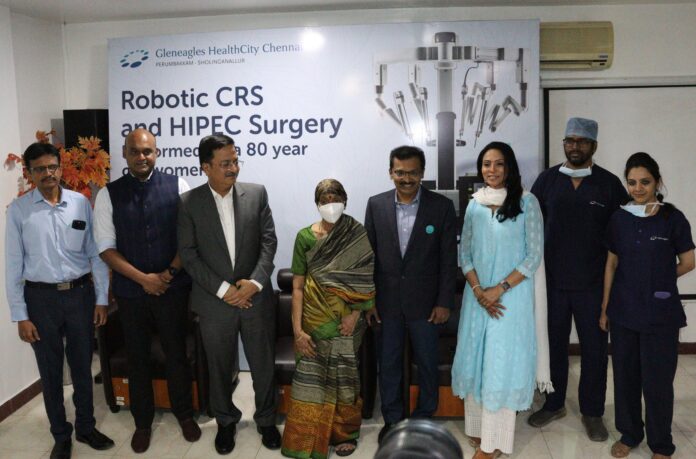

Gleneagles HealthCity Chennai performed four robotic-assisted Hyperthermic Intraperitoneal Chemotherapy (HIPEC) procedures within a year.
The initial patient responded well to preoperative chemotherapy, making her an ideal candidate for the complex CRS+HIPEC procedure, which involves infusing heated chemotherapy directly into the abdominal cavity. The robotic assistance allowed for greater precision and reduced recovery time, leading to the patient’s discharge six days post-surgery and a return to normal activities by the second day after the operation. Follow-up appointments revealed no complications.
Dr. S. Rajasundaram, Director of the Institute of Oncology at Gleneagles HealthCity Chennai, emphasized the collaborative efforts of a multidisciplinary team in ensuring the procedure’s success. He noted that post-surgery rehabilitation focuses on maintaining activity and good nutrition to combat fatigue, a common challenge during recovery.
The hospital’s CEO, Mr. Anurag Yadav, highlighted the increasing preference for the HIPEC procedure over conventional surgery due to its efficiency and quicker patient discharge. Dr. Nageswar Rao K, Chief Executive Officer of Gleneagles HealthCity Chennai, praised the impact of robotic surgery on minimally invasive procedures, noting its benefits in precision, safety, and reduced complications for complex oncological cases.
All patients who underwent the robotic HIPEC procedures are under regular follow-up and have shown promising progress over the past six months.























